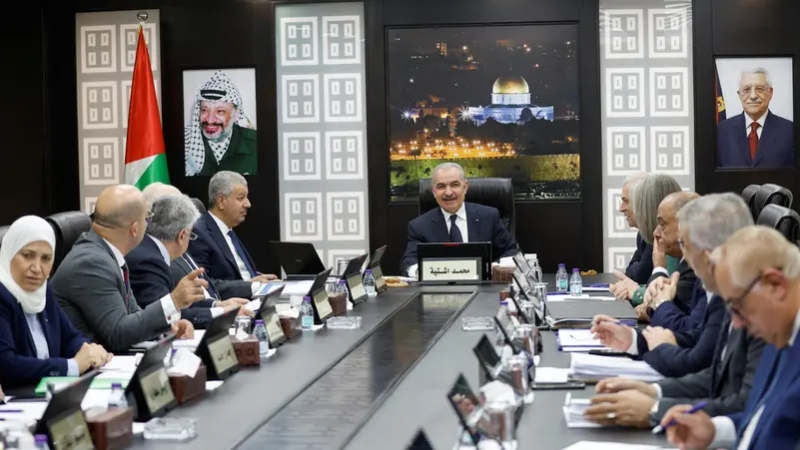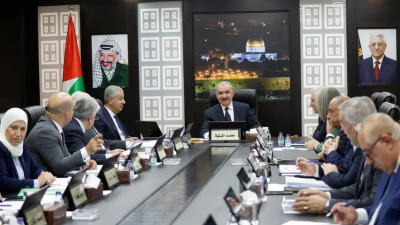After Palestinian Prime Minister Mohammad Shtayyeh announced that he submitted his resignation to President Mahmoud Abbas amid increasing discussions about restructuring the Palestinian Authority, Fatah explained that any upcoming government will be based on competencies. Abdul Fattah Dloha, Fatah's spokesperson, stated today that no government will be able to perform its role if the Israeli blockade continues. He emphasized that "the upcoming government will consist of competencies and not factions."
Furthermore, he clarified that Shtayyeh's government suffered from the Israeli financial blockade, adding that the movement is waiting for Abbas's stance on accepting the resignation of the current government. He confirmed that the upcoming phase is challenging and requires national consensus to aid the Gaza Strip.
This comes after the Palestinian Prime Minister confirmed that the next phase requires "new governmental and political arrangements that consider the new realities" in Gaza, during a ministerial meeting in which he announced his government's resignation. Shtayyeh stated, "The next phase and its challenges need new governmental and political arrangements that take into account the new realities in the Gaza Strip, discussions on national unity, and the urgent need for Palestinian-Palestinian consensus based on national foundations, broad participation, and unity, as well as extending the authority of the Authority over all of Palestine."
Meanwhile, Hamas confirmed yesterday that it is not the right time to form any government or make changes in the Authority, rejecting the idea of a technocratic government (i.e., specialists).
It is worth noting that President Mahmoud Abbas still has to decide whether to accept Shtayyeh's resignation along with his government. However, this step indicates the Palestinian leadership's readiness to accept changes that could lead to reforms deemed necessary internally and externally to revitalize the Authority and assert its control over all Palestinian territories, including the devastated Gaza Strip due to the violent war that erupted since October 7th.
Previously, the United States had pressured for the formation of a new reformist authority to take control of Gaza once the fierce war ended, placing it in a position that conflicts with Israel, whose Prime Minister Benjamin Netanyahu declared that he opposes handing over control of the Strip to the current Palestinian Authority, claiming it sympathizes with Hamas. However, he hinted at the possibility of reoccupying the area or handing over governance to local officials without providing further details about this convoluted vision.




